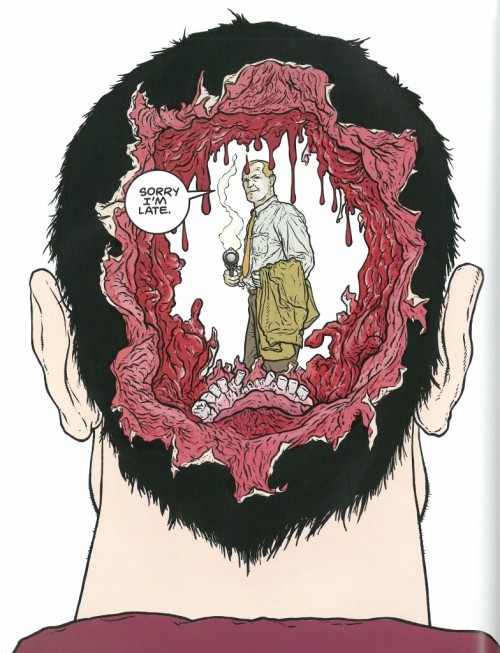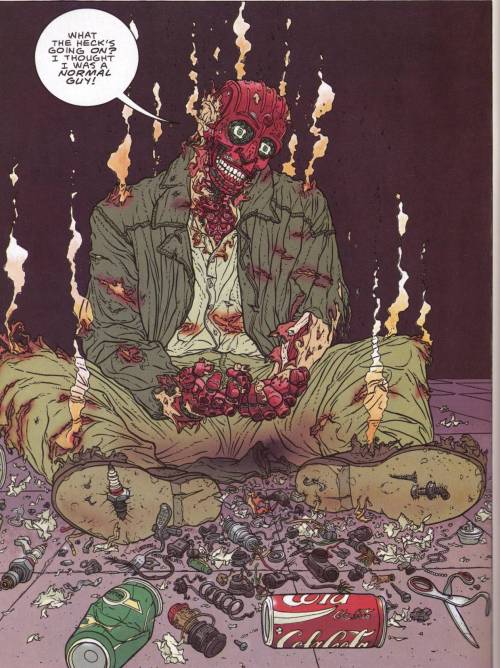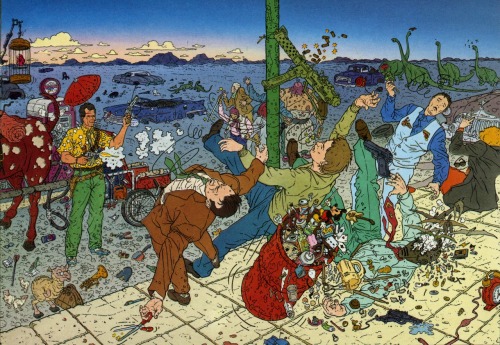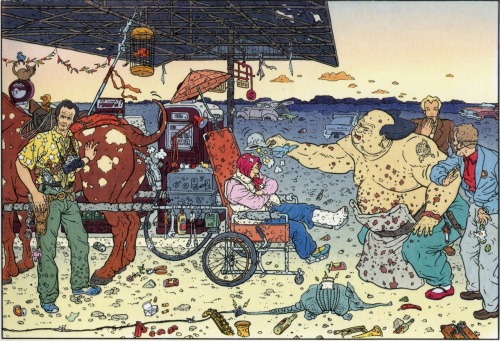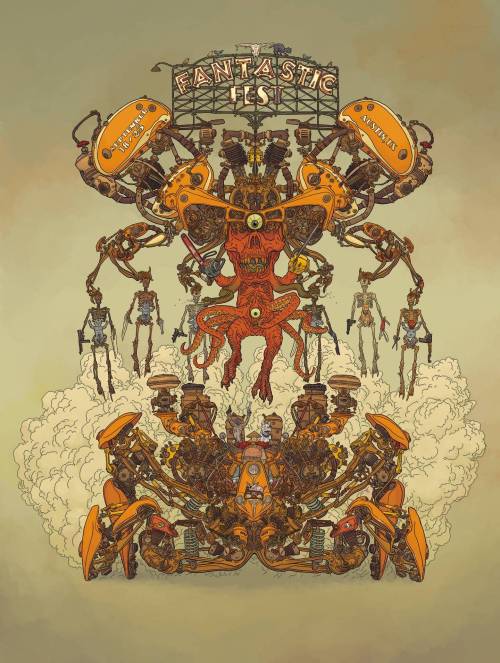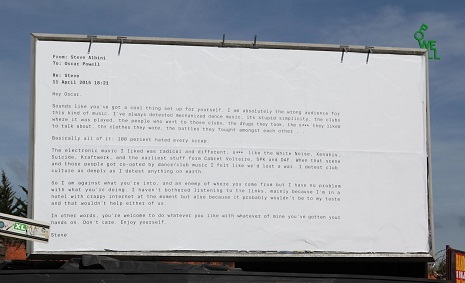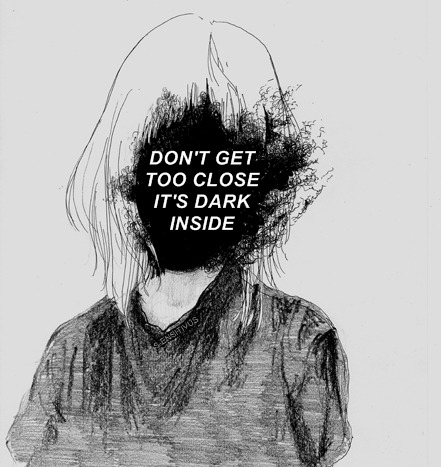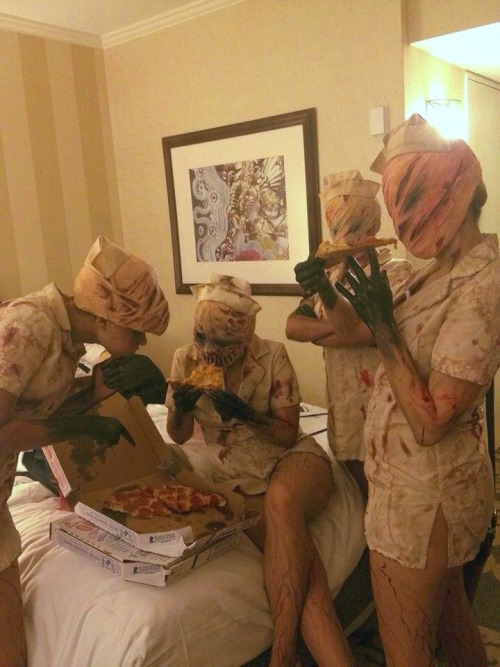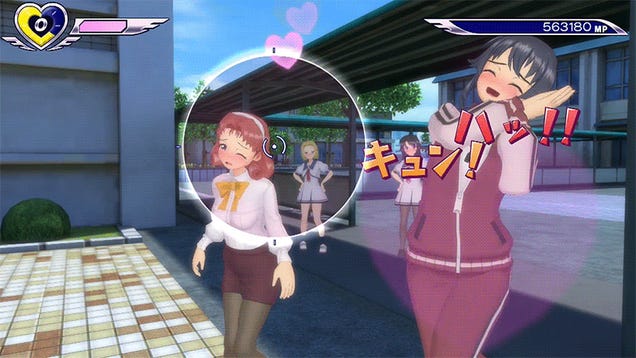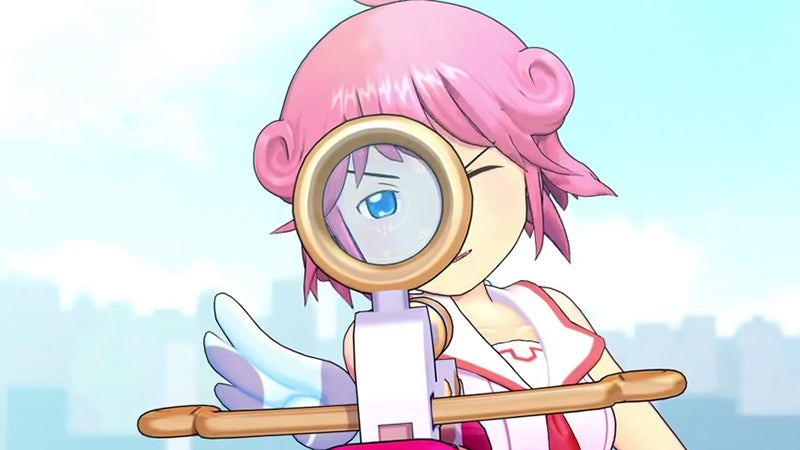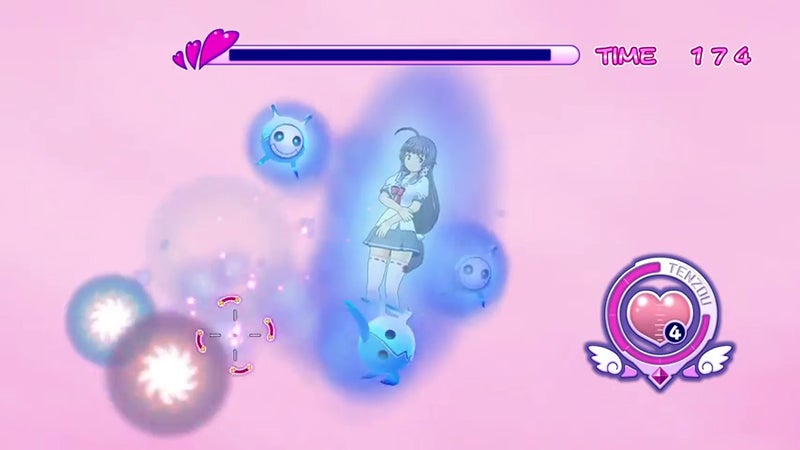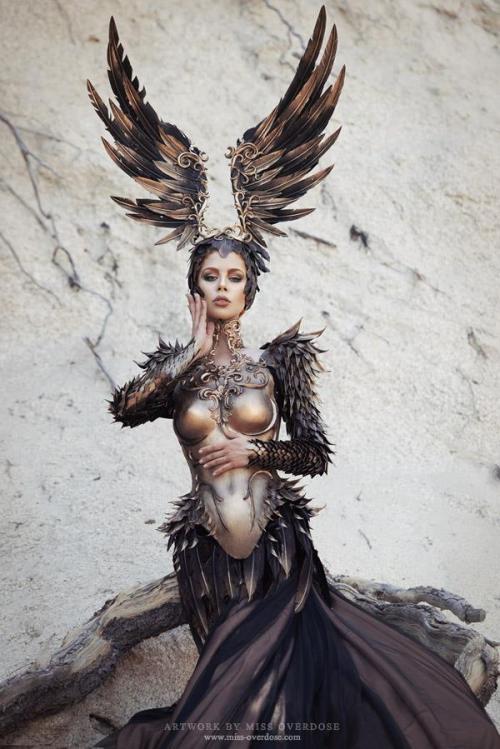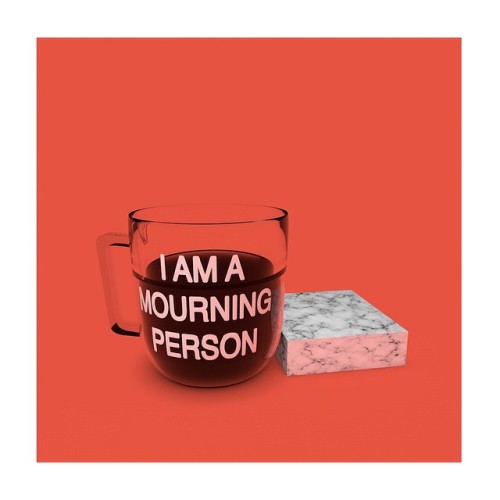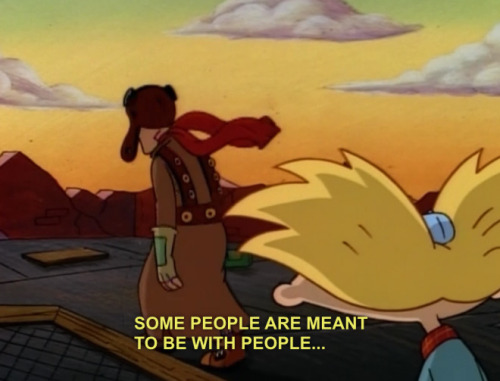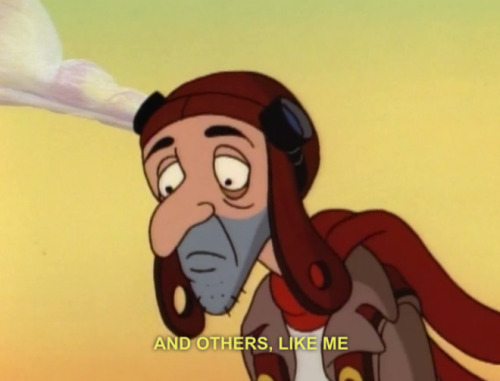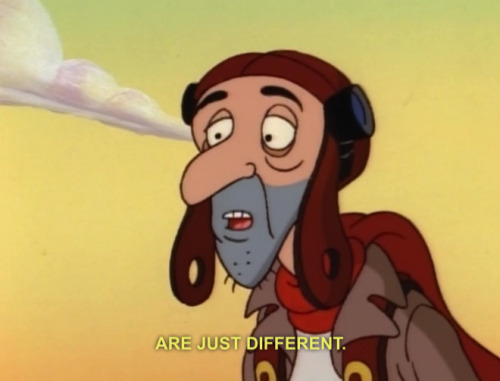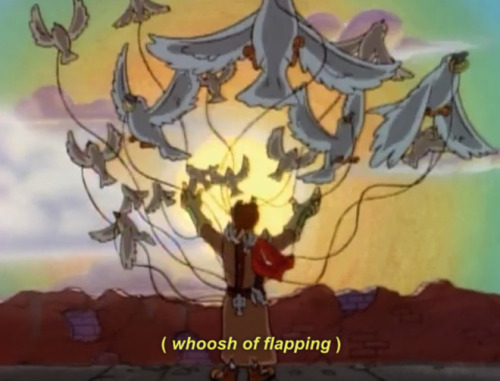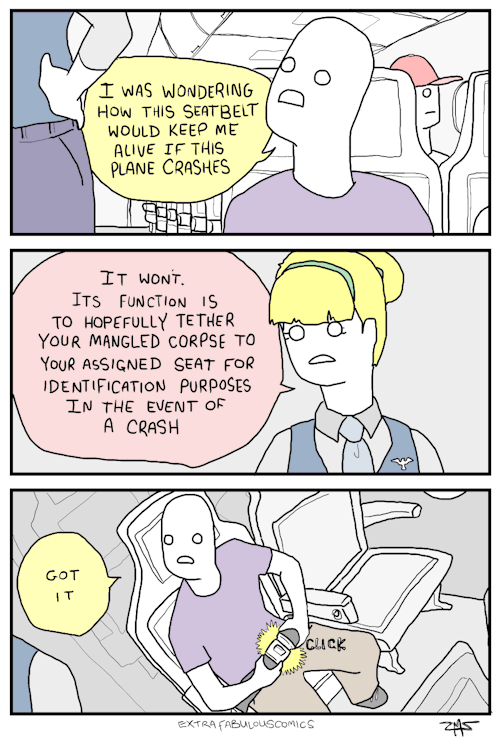Contains spoilers
In Bethesda’s 2011 open world masterwork Skyrim, despite the level of freedom the game offered you, the matter of political choice was pathetic. Aside from a few interpersonal developments of no importance in the grand scheme of things, the only real choice was which idiot side you were going to take in a civil war that might have been interesting if its principal actors weren’t boring ideologues who existed purely to give the player new quests. There was no sense that any of it mattered, and when it was all over the world was exactly the same.
So when CD Projekt Red started teasing information about The Witcher 3: The Wild Hunt, each announcement about the high-stakes decision making in the game was met with real excitement. There were to be not two or four but thirty-two possible endings to the game, and with an open world that was a fifth bigger than Skyrim, players were promised the ability to have their actions make a noticeable impact on the world around them.
The decisions are not black-and-white either: sometimes you’re forced to make agonising choices where something must inevitably be sacrificed or go wrong. This is not a good versus evil high fantasy – it is a brutal world whose violence stretches well beyond the game’s combat system and into the very social fabric of the place.
I decided that the shades-of-grey political backdrop and the sheer potentiality of every decision would be the perfect game world in which to test whether or not it’s possible, in a medieval fantasy RPG that boasts freedom and complexity, to be an anarcho-feminist.
Why? Mostly because you’re never meant to play a game like that, in this genre at least. The average videogame hero, even the tiny percentage who aren’t white dudes, always follows certain conventions, in both the writing and the gameplay. They’re tough, not just physically but emotionally, either boisterous or silent. They stick to quite a boring gender performance, with animations that reflect conventional Euro-American notions of strength and beauty. And they’re always the fucking hero: they’re the leader of the group, they’re the toughest of all the goodies, they’re the one who makes everything important in the plot move forward.
I wanted to see if instead I could play a character whose interests were a bit less tedious than being some empty, unquestionable Nietzschean superman. I wanted to test the so-called freedom of what is clearly the most groundbreaking open world game of our generation, to see if I could reject the usual triple-A heroism and play a character who is sensitive, humble, committed to social justice rather than self-aggrandisement. I wanted to play a male character who could be an actual ally to the empowerment of his female co-stars, a-la the new Mad Max, rather than just the tough guy who saves them. I wanted to immerse myself in this world committed to freeing its inhabitants from their miserable feudal bondage, rather than just saving the day and making sure that the system can survive.
I wanted to play a hero that Gamergate couldn’t wank over.
The Witcher series stars Geralt of Rivia, a gruff, wry fighter with the ridiculous scratchy voice of a hypermasculine videogame hero from the mid noughties (which he originally is). He sounds just as silly as the Master Chief, but sadly has a lot more to say. Geralt is a witcher, a professional monster hunter from a reclusive male-only school of magical mercenaries. All witchers are genetically modified as children, which gives them significant strength, as well the ability to cast basic magic spells and to recover from diseases and toxins far better than normal humans. They have yellow eyes as a result of this modification, a physical trait which makes them easily identifiable. Many common folk hate witchers, and I passed much of the game with peasants hurling casual abuse at me as I rode through their villages.
The world in which Geralt operates is famously brutal, but it is characterized by different layers of nastiness. There is an overwhelming sadness to the place that manifests itself in different ways. You operate for the most part in two separate regions: Velen, which resembles Western Europe with its fields like Languedoc and its swamps like Devon; and Skellige, an archipelago of Norse-type islands where, charmingly, everyone is basically a Viking with an Irish accent.
The variety of landscapes throughout these regions is consistently well thought-out, with CD Projekt Red not letting you binge on epic vistas all the time. Instead, as you explore the place, you are gradually rewarded little by little with more of the world’s miserable beauty, in modest slices that you’ve really worked hard to enjoy.

Politically, the world is suffering from tyranny and imperialism. From the south, the immensely powerful empire of Nilfgaard (whose head honcho is voiced by Tywin Lannister!) is pushing upwards into the bitter no-man’s land of Velen. Nilfgaard may have medieval trappings, but its discourse is harshly Enlightenment: anywhere you travel where its soldiers are garrisoned, there is endless propaganda that talks about ‘order’ to a small degree and ‘reason’ to an overwhelming one. Their message to the frightened peasantry is clear: abandon your rural superstitions and your lazy work ethic, and instead toil away in our glorious modernity. It is an attitude that manages to embody a range of dodgy Eurocentric beliefs, from ‘cogito ergo sum’ to ‘arbeit macht frei’. I don’t care how much science and order the Nilfgaardians are bringing with them: they’re total dicks. They even put out signs threatening to hang benefit cheats, in case it wasn’t obvious enough that they’re a bunch of Tory scum.
Meanwhile in the north, the Kingdom of Redania, ruled by the increasingly insane King Radovid, is imposing its will on the formerly ‘free city’ of Novigrad, and it is doing so in a fit of religious and racial hysteria. Their official faith, the Eternal Fire, has echoes of late medieval Christianity, complete with inquisitions, burnings, and pogroms against ethnic minorities (okay, elves and dwarves, but still). Both empires really have it in for mages and sorcerers and the like, occasionally including witchers.
Against this backdrop, Geralt is in pursuit of his ward, a daughter-like figure called Ciri, who is on the run from an apocalyptic band of magical warriors called the Wild Hunt, and who the player controls in occasional small sections of the game. I chose to play on Death March, the hardest difficulty setting, because I wanted Geralt’s activism to be difficult. Fighting for social justice is a fight, after all, and making it easy would have taken something away from the difficult decisions I expected to face in the game.
Geralt is not an empty vessel: he was originally a character in Andrzej Sapkowski’s novels on which the game is based, and has been morphed into a hero in his own right by the events of the two previous Witcher games (which I haven’t played). This is a form of game writing I prefer: a main character who you have control over, yet whose personality is always already separate from the player’s. Simply not writing a lead character, as with Fallout 3 or Skyrim, normally comes across as more lazy than liberating. Having a character with some, well, character, provides some actual basis for emotional struggle. What kind of masculinity is Geralt wrestling with? Does he sometimes just want a hug?
The wealth of dialogue options in the game made this struggle interesting. Geralt is, at the core of his writing, sexist and creepy. Throughout the entire Witcher series he has become famed amongst gamers for being quite the sleazebag, with his ‘romantic’ pursuits usually leading to sex through lines that really would not work in real life. Part of the lore is that witchers have a ‘high libido’, but this seems like a weak excuse to design a character who makes the kind of weird macho advances people go to gay clubs to avoid.
I got around this by deciding to play Geralt as socially anxious and mildly repressed, as if he’s slightly genderqueer but doesn’t really know how to go about being as tender and fabulous as he deep down wants to be. This is why, when Geralt has the opportunity to take the lead part in a play, I elect for him to do so, and even insist on making design decisions for a cabaret theater, with the lovely dialogue options leading Geralt to say “boudoir seems like a better choice for cabaret. Just don’t go overboard on stuffed upholstery.” For at a short time at least, Geralt is a thespian, darling.
In terms of roleplaying his social anxiety and aversion to displays of manly aggression, tropes of the genre do not make it easy. Sometimes, even if I pick the dialogue option that I suspect will lead to the most empowering outcome for Ciri or one of Geralt’s sorceress friends (all of whom you get the chance to shag), Geralt would make a sexist joke.
Case in point, when I plotted with the sorceress Triss Merigold to sneak into an aristocratic ball. I had the option of not sneaking in stealthily, I think, but it was Triss’s idea and I wanted Geralt to follow her lead like his (2015) Mad Max template, which was a helpfully empowering option. But before we go in, Geralt just can’t help himself and says “eighty five desserts, while you’re trying to keep your waist at 22 inches”. I might support your cause, little lady, but don’t you dare get fat. It was a moment of knee-jerk nastiness that I think has more to do with the writers not thinking than in them saying ‘let’s make Geralt mean because art’. Compared to the sensitive and funny depiction of Ellie, a fat-positive self-proclaimed sex icon in Borderlands 2, this writing comes across as reactionary and stale.
Of course, sometimes the writing allows for a joke that isn’t necessarily awful. On another escapade, Triss suggests that I fake-arrest her, and withdraws a pair of handcuffs. I choose the dialogue option to make a sexy handcuff joke, because anarcho-feminists are still allowed to make hilarious jokes about shagging. I’m a sex-positive social justice witcher, innit.
There are two moments in that particular sub-plot that give me the opportunity to have Geralt hook up with Triss. The first was at the aforementioned ball, where we had an important mission to smuggle a mage out of Novigrad, and yet for some stupid reason Triss decides to get drunk and flirt with Geralt like a teenager. The game gives me the opportunity to have Geralt kiss her, but I found that writing the serious woman who had made the plan in the first place only to get wasted and get off with the main character to be too fucking dumb. I also didn’t like the idea of making Geralt a dudebro who takes advantage of the drunk girl at the party, so I had him pull away and remind her of the mission she’d carefully plotted. It felt like mansplaining was the best option.
The second opportunity to seal the deal with Triss was at the end of that mission, when she was rescuing a boat full of mages and was about to leave with them. Geralt says to her ‘stay’, and she’s tempted, but not convinced, and then I get the option to have him say ‘I love you’. Much as I support Geralt getting laid, the game hasn’t really given me any reason to believe that my version of Geralt would love her. So I let her go, because even though I’m a sex-positive social justice Witcher, none of the opportunities to get with Triss are unproblematic.
I also later discovered that the sex scenes are by far the most utterly cringeworthy parts of the game. This isn’t artistic grittiness, this is, again, weirdly sexist writing, this time spilling over into the part of the game studio where they actually make it happen. I was reminded of the SNL skit about Game of Thrones having a special advisor on set, a repulsive teenage boy whose advice in every case was “this scene needs more boobs”, and who took a lot of bathroom breaks. Awful.

There is a problem with the game’s writing of women in general, though not necessarily in the characters themselves, who are often powerful and complex. The problem is that however strong or interesting a female character, they so often still seem to revolve around Geralt’s penis. He gets four chances to bed various women, two of them major characters, and one of them explicitly rewarding Geralt with sex for completing a mission. They might pursue their own interests for the most part, but having so many women fawning over Geralt with a sexy reward hanging so obviously in front of the player, makes it impossible to play through the game without seeing Geralt as faintly disgusting.
Worse, in the brief sections when you play as Ciri, you march her over all kinds of terrain – ice, mud, cobblestones – in big fucking great high heels, which of course never slip on the snow or sink into the dirt, even though it’s raining. That rendering of a character’s appearance to please the male gamer’s gaze with no corresponding explanation or matching gameplay is a hideously lazy trope that really doesn’t belong in a modern game with claims of complexity.
Roleplaying Geralt’s anxiety, which was probably the biggest stretch of all my character decisions, was more down to my interpretation than anything else. I worked with a Baron whose stillborn child turned into a monster, and when he started shouting about it in public after we’d agreed to kill it, I picked the dialogue option telling him to quiet down – not because he was annoying me, but because I’m anxious and what if people are listening and please don’t give me a panic attack. On one infiltration mission, a guard tells me to leave my weapons at the door, and I pick the option to do so – not because I’m confident of my ability to win the day through cunning or stealth, but because it makes my Geralt feel awkward to refuse social convention.
One time I met a hunter in the woods, who in conversation referred to himself (and his elective social isolation) as ‘a freak’. I decided to pry his story out of him and said “I’m a freak, too”, at which point the hunter revealed that he was gay, and had been chased out of his village after his lover was killed. The connection between the two characters for their respective ostracism was a moment of tenderness in the game that felt a little deeper thanks to my Geralt probably not being 100% cis, and it made me wonder what possibilities for videogame writing may exist for LGBTQ protagonists to increase the depth of a story or world.
At most points when some bloke down the pub threatens to start a fight, the game gives you the option to instead buy them a pint. My Geralt might be a conventional dude sometimes, but having the option to reject toxic masculinity and make friends with someone felt like a real saving grace for my social justice witcher, and not just a helpful way to avoid brawls. My rule throughout the game, to reject manly competition when there was a gentler option, was given a fair few opportunities to play out, and was quite often rewarded. Liberating Geralt throughout the game was only a partial success, but The Witcher 3 still sets a far better example than most in that regard, and I hope it inspires writing teams to marry good gameplay with player/character self-expression in the future.
As a liberator of others, Geralt has the greatest opportunities when it comes to questions of nationalism. Since poor broken Velen is part of the shattered kingdom of Temeria, now swallowed by Nilfgaard and Redania like wartime Poland, I had plenty of opportunities to see people harmed by the machinations of empire. People would hide their Temerian flags that used to hang in their village pub for fear of Nilfgaardian soldiers burning the place to the ground, while Geralt occasionally makes contact with Temerian resistance fighters and can decide whether or not to help them. In every case I can think of where I had the chance, I chose to help the resistance, against both Nilfgaard and Redania. Only one of those exchanges was violent, attacking some Nilfgaardian soldiers to liberate a village, and the rest were largely humanitarian. Neither of the two empires, despite their promises, were out to help the peasants, but the resistance soldiers were keenly aware of poverty, famine and so on, and so supporting their efforts to provide welfare for the people made perfect sense. The game gives many such opportunities, and it felt good to be able to choose to do so rather than simply be forced by consequence of driving the central plot forward. My stake in their success was personal.
So, naturally, when the chance arose to take part in the assassination of King Radovid alongside various Temerian resistance fighters and the Machiavellian manipulator, Djikstra, I couldn’t refuse. Djikstra used to be the spymaster of Redania, back before Radovid and the mad religion of the Eternal Flame ruined it, and he looks wistfully back to an age of reason, with fair courts, a strong arm against corruption, and people who were secure and healthy. His reason for killing the king is largely patriotic, but it sounds pretty fair in the geopolitical circumstances, so anarchist Geralt lets it slide for the time being.
Once the job is done and we’ve nailed Radovid, though, Djikstra turns on his Temerian comrades. Their plan had been to submit to Nilfgaard as a client state, so that they could at least run their own legal and social systems with relative autonomy. Djikstra, however, is a nationalist at heart, and he’d done another deal on the sly, to hand over the old Temerian lands to a new coalition of northern kingdoms that could fight Nilfgaard under singular Redanian command. He tells me that he has no choice but to kill his erstwhile Temerian allies with whom we’d worked, and that I ought to leave so that I didn’t have to see it.
Aside from the interpersonal issue of the fact that killing your revolution buddies after a successful regicide makes you a total dick, I also chose to defend them because I was in no hurry to betray the political choices and autonomy of Temeria as they themselves saw fit. I killed Djikstra, an ally for most of the game and a character I found quite likeable, but it was made easier by the fact that he described himself as a patriot – ultimately, humanitarian concern was beneath him, and he would rather let thousands die for his (not even their own!) nation than give them a break and let them keep their own courts and customs.
The issue of religion, too, gave plenty of room for political exploration. The depiction of different aspects of different faiths is sensitively done in this game, perhaps more than any I’d ever played. Making decisions about when to beat the shit out of someone for their faith’s crimes and when to try and protect believers from the machinations of bullying rationalism was consistently thoughtful. On the one hand, any time the Spanish Inquisition bastardry of the Eternal Flame nutters got out of hand, I could violently overthrow them, tear down the propaganda, and generally punish them for their oppressive ways.
On the other hand, I also took on quite a funny quest around the swamps of Velen, after several pagan shrines had been knocked over by unknown hooligans. Reaching the final shrine to put upright, I found myself confronted by them: a gang of snivelling, virginal Richard Dawkinses, university students all, who were spouting (verbatim) famous adages from Nietzsche’s Beyond Good and Evil and claiming that they were fighting evil by attacking the ignorant religion of the commoners. Luckily they attacked me – I wouldn’t have chosen to use religious violence against atheism, since I am one and since religious violence sucks – and so I had the digital delight of running a sword through Sam Harris’s idiot fan club of New Atheists. The fact that they initiated the violence rather than me reflected the inherent ugliness of their creed: in the name of reason, I must die? How very Iraq War. It felt good that even in death I could somehow tell Christopher Hitchens to go fuck himself.
Fighting for the economic autonomy of the people of Velen and Novigrad was a mixed bag. I’m an anarcho-feminist witcher: I don’t just want people to be nursed like some milksop social democrat, I want to liberate them from the structures of oppression that crush their autonomy! Down with feudalism!
In the first hour of the game, it became clear that this was not going to go well: I was tasked with finding an arsonist who had burned down the smithy of the dwarven blacksmith Willis. I found him, caught him, and he said something racist about dwarves, so I wasn’t inclined to sympathy when he offered me a bribe for silence, and turned it down. He threatened to fight me, but I am a pacifist so I used a magic spell to lead to Willis, who decided to report him to the soldiers. They found him guilty without any evidence, except for the fact that I had declared him the criminal. A Witcher’s word clearly has unquestionable social capital for some unexplained (and unchallengeable) reason.
The soldiers hanged the arsonist, which was not my plan at all. I was trying to help everyone in the village to get along whilst protecting the economic autonomy of a worker who controlled his own means of production! This was practically a cooperative! Willis’s final words in the quest are that maybe the Nilfgaard soldiers aren’t so bad because they’ll finally bring some order to the place. Great; I’ve just helped some shitty Daily Mail reader go all military industrial complex on a wayward lad. The game’s inflexibility, and my innocence towards it, caused me to unwittingly help out a violent fascist; Nigel Farage would have vigorously nodded his stupid face at that subplot.
In other cases of blacksmith liberation, however, I had slightly more success, my favourite being helping out a master armorer in the city of Novigrad who was unable to carry out his life’s work and was reduced to using his forge to cook dumplings, thanks to a crime syndicate that controlled the local smithing trade and refused to let him sell in the city. Unelected thug lords be damned, I bet they’re hurting the common folk – and went about plotting their downfall in violent street exchanges. My blacksmith friend was eventually free to continue his good work, and he forged me a shiny new sword as a result. Liberty..?
I began to realise fairly early on that the economic choices in the game were bending me inexorably towards being a libertarian instead of an anarchist. In every single case of helping someone have autonomy, it was ultimately only in the service of petit bourgeois liberation, be it a monster that was making business difficult, or local thugs or feudal lords demanding a cut – they, especially, could quite easily have been viewed as lazy big government lackeys sapping the essential energy out of free trade.
There is plenty to be said by some anarchists for a kind of market socialism, with the main institution being democratic worker cooperatives, and I tried to keep those ideas of money and exchange and autonomy in mind as I freed numerous entrepreneurs through the world. But ultimately it was all done in good faith, as well as a sense of resignation that there was no way for me to guarantee helping cottage industries was going to help the workers. There were very rarely apprentices, which made each smithy and merchant’s shop a kind of Ayn Rand utopia in which the only visible labour is that of the brilliant entrepreneur, the source of all value and creativity. This, though subtle, was for me one of the blandest features of the game, because it is an accidental trope rather than a philosophical decision.
Of course, slaying monsters and driving bandits out of town is still a socially useful exercise. The first Witcher contract I take on, to slay a Griffin, is given extra importance not just because the man with the contract has information I need – you also see the Griffin preying on innocent villagers in the countryside. Most of the monsters Geralt is asked to slay are pests in this way, and the game is deftly crafted to really show you that this is the case every time, rather than just tell you ‘werewolves are bad’ and expect you to believe them. There is a lot of delicately crafted blood and strife in this world, and CD Projekt Red has done a superb job of rendering it visible.
The problem for an anarcho-feminist Witcher is that the ambiguity of Geralt’s success is never explored. One of the features of the game that best demonstrates this is a series of abandoned villages containing either bandits or monsters. You clear the village out in a bloody spree (which is great fun), and the villagers move back in, the advantage of which is that there are now new shops! Have I accidentally participated in nothing better than gentrification? It isn’t possible within the game’s limited mechanics to know – I am forced to assume (or hope) that the peasants are automatically better off because I’ve smoothed the system out for their baron and merchant overlords. The discourse hidden within that emptiness feels inherently capitalist.
I did get some satisfaction at the end of a Witcher job when I chose to let the monster, who I decided was innocent, go, and the customer (another fucking merchant) threatened to withdraw his payment. “There’d better be one, or you’ll feel the invisible hand of the market smack you so hard you won’t be able to sit down for a week.” I saved an innocent from a merchant and made an Adam Smith joke to threaten him with violence – that felt good, a reminder that the writers of The Witcher 3 are clearly an erudite bunch on a good day.
Some of the decisions occasionally felt contrived and slender, however, where they seemed less interested in creating the freedom of choice the game promises, for the sake of gratuitous bloodshed. Geralt is asked to find Ravvy, a card collector who has a particularly rare card that I need to buy. When I arrive at the pub to meet him, Ravvy is tied to a chair with a knife to his throat, and the bandits present tell me that I have to beat them in a card game or he dies. In other hostage situations in the game I’d taken the choice to initiate combat, but for some reason that wasn’t an option here – I had to play cards with them. I lost, they killed Ravvy, so I got up and slaughtered the bastards like I should have done in the first place, instead of trying to be ‘the good guy’ whilst submitting to a framework of power set by villains and enforced with violence. No game has ever made me feel so much like a social democrat, simpering and ineffective. Stop faffing about and fight the power already, damn it.

I’m convinced that The Witcher 3 is an important moment in gaming, a breathtakingly complex open world that delivers a more consequential scale of shifts in its world than anything that came before. Though it never directly intended to give a radical option and fails to truly offer one to the player (as this joke experiment hopefully demonstrates), it makes groundbreaking advances in the relationship between gameplay and writing that show what the platform is becoming capable of.
Little things in the gameplay helped strengthen the writing enormously. Time-sensitive dialogue options, with a visible time bar running out, added urgency to scenes that lesser games all lack – but which would not have been effective unless your choices led to often painful consequences, something this game achieves brilliantly. Having an economy and ecology that you could see and to a certain extent participate in was full of brilliant touches, from the remarkably well-considered layout of villages and farms (unlike Skyrim it’s actually plausible that these people grow enough to feed their kids), to the incredible weather systems that let you see a rainstorm approaching and whose wind stirs each individual branch. Liberating villages did make the world feel more stable, too, despite their vacuous redevelopment.
My favourite feature was the roads: Geralt could ride his horse off road, of course, but if you galloped it would sap the limited stamina of your horse, and riding through a thicket or a forest is as annoying and difficult as it would be in real life. But get yourself on a road, double-tap the canter button, and your horse will not only be able to gallop indefinitely, it will even stay automatically on the path so that you don’t have to wrestle with fiddly controls. This isn’t just immediately more satisfying than other games with horses that are often cumbersome and stupid, and helps you to actually want to ride through a landscape rather than pick the fast travel option, it also genuinely works to create a sense that this world has unity of purpose, that the lives of these people are interconnected, that a village doesn’t just exist for the benefit of Geralt to ride through and save the day. It creates a wonderful feeling of irrelevance and organic majesty, where the world has more to it than simply revolving around a muscly white dude and his amazing traveling wiener – there were people here before Geralt, and they will be here after he is gone.
The combat system, too, is good not just in its own right but also for helping you to understand Geralt’s place in the world. For one thing, playing through the increasingly puissant Ciri sections of the game shows you that she is a sorceress of wicked power, and returning to the comparatively slow and fragile Geralt gives a helpful insight both into Ciri’s power (which is significant to the story) and into Geralt’s weakness, that the main character isn’t the toughest guy in the world for a change.
Witchers are freakish strong, and fighting against a human opponent always makes you feel like you have a natural advantage. But come up against a monster, and you’re vulnerable; they’re huge, quick, some of them have big fucking great tails or breathe fire and so on. If you haven’t researched a monster before approaching its lair, it can kick your ass in seconds – ditto if you haven’t taken the time to prepare the appropriate bombs and potions, taken care of your gear, etc. Being tougher than humans makes your chosen profession make sense, but it also highlights that a Witcher’s work is both dangerous and necessary. Perhaps that is why Witchers are tolerated more than other magical creatures, who are ostracised and abused? The gameplay makes this aspect of the writing much more plausible.
Speaking of racism in the game, there were two things that struck me. The first was that the only people of colour that I encountered in the entire game were overly sexualised black satyr women frolicking attractively at the feet of a big bad demon. This is pathetic, probably even worse than not including them at all, and Jesus Christ it’s 2015 and we shouldn’t need to be saying any more that black women doing an exotic dance for your pleasure is a racist trope.
The second thing, however, is that the game showed a rare sensitivity towards a classic fantasy trope: racial absolutes. Tolkien is of course the arch-fuckup of this way of thinking, with his “elves are wise and gentle” and “dwarves are gruff and love dirt” and “men are corrupt” shtick. It is basically eugenics – a dwarf character is a dwarf before he is a character, and conforms rigidly to his proto-Nazi archetype. The Witcher 3 has elves and dwarves, but it does them a little differently, and sets a good example for how a game can deal with racism a little more intelligently than just thinking “what would Tolkien do?” The elves and dwarves live largely on the margins of society and experience structural racism that the writers make clear is the result of rulers stirring up peasant suspicions for political games. This racism is used to justify surveillance measures, which was a clever touch.
But what makes the writing really impressive here is that it demonstrated on several occasions that if a character did live up to its ethnic archetype in some way, it was not because of her biology but her culture. This touches on struggles in fantasy writing that go back to the 1960s or so, and I was pleasantly surprised to see that some of the more thoughtful discourse about ethnicity and culture in fantasy worlds has finally started to dribble into videogames. It’s about time.
Ultimately any critique of the discourse of a game that includes both the writing and gameplay is a question about technology and freedom. I played Geralt as an anarcho-feminist because he so clearly isn’t one, and I knew that the project would fail. But it fails in a way that inspires me. Geralt’s character is sexist and hypermasculine, but I felt like I had enough freedom to act as if he were struggling against that, even if he couldn’t just change himself automatically – just like men in real life. The economy is a weird mix of capitalism and feudalism, but it manages to manifest itself more plausibly than most and does not go overboard about praising its virtues; this is the way of the world, and the world is shit, and you are allowed to think that. Some nations and religions were evil and oppressive, but I was given the choice to side with the ones that weren’t necessarily so, and the game didn’t force me into either violent rationalism or mindless hippy bullshit about what-is-truth-maaan and loving everyone equally. It was a series of genuine choices that allowed me to think seriously about the context and values of the Geralt I was playing.
The whole point of a game is essentially to reflect a certain bureaucratic ideal. Games, digital or otherwise, must have rules. A big part of child’s play is agreeing on what rules to collectively impose on whatever dumb activity you’re taking part in, and these rules always already have some kind of cultural basis, even if it seems like they’re original thoughts. After that point, play is all about twisting something from its original purpose, of bending or breaking those rules for fun. A videogame is probably a purer form of the rule-setting dynamic than pure child’s play, because children at least can change the rules of a game through collective whimsy, whereas a gamer is trapped eternally within the algorithms of a world that someone else has built. Espousing radical politics is never about winning the game: it is about deposing the referee, tearing off the team colors, distributing all the hotdogs for free, and sometimes getting everyone safely out and burning the goddamn stadium to the ground.
So when a game promises freedom to the player, they mean the same thing as when a politician promises freedom to the citizen: the freedom to do a specific list of things, outside of which you must never stray, otherwise you are a pariah, a terrorist, or an idiot. Half the trick is to expand the choices available, and the other half is to obfuscate, to disguise the lack of freedom. There were plenty of dialogue options and side objectives that often lead to nothing, or to rejection – there is no way in The Witcher 3 to feel like you’re checking boxes simply to make things easier. There is an extra cloak of uncertainty to every little interaction, that disguises either enormous changes or nothing at all: in my one play through, I couldn’t possibly tell.
This is the true art of videogame making. I couldn’t play Geralt as an anarcho-feminist exactly, but perhaps that isn’t entirely the fault of the producers? I suspect it is, but I can’t outright prove it (not unless I play the game 31 more times), and that sense of mystery and bottomlessness is becoming increasingly more possible with every advance in the technology. This question of defining freedom within strict technological constraints, and how to widen the paradigm a little further with each new videogame, has enjoyed considerable strides with The Witcher 3, and I hope it is remembered as a moment when freedom in gaming began to morph into something truly spectacular.
When Nietzsche talked about the duty of parenthood, he said that one must “create a creator” instead of an image of oneself. After my Geralt had gone through many supposedly earth-shattering adventures and had made all this effort to hand some of the reins of this beautiful world over to its perpetually downtrodden peasantry, the world system had stayed the same. Our challenge to videogame producers is no different to Nietzsche’s: must this game world be so forever, or are you willing to use the powers you clearly have at your disposal to create a little revolution?










